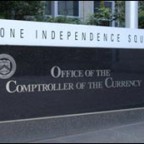Ambush? OCC’s Suddenly Doubling and Tripling the Civil Money Penalties Sought from Ex-Wells Fargo Executives

One of AABD’s key missions is to advocate for the due process rights of bank directors, but when due process rights of bank executives may be infringed upon, we will speak out. The same enforcement powers of the banking agencies apply to not just bank officers and employees, but also bank directors.
Recent OCC filings in the administrative action against three former Wells Fargo executives reveal that OCC enforcement counsel are attempting to double or triple the civil money penalties that were disclosed by the agency in a notice of charges dated January 23, 2020. The recent filings occurred on March 29, 2021, more than 14 months after the notice of charges was issued.
The OCC is now seeking a civil money penalty of $10 million against Claudia Russ Anderson, up from $5 million (doubling the penalty); $7 million from David Julian, up from $2 million (more than tripling); and $1.5 million from Paul McLinko, up from $500,000 (tripling).
As far as we know, this is unprecedented. Once a notice of charges is issued stating the amounts of the civil money penalties sought, the agencies will not make an effort to increase the penalties. A notice provides the target with the knowledge of the maximum penalty. Based in part on that knowledge, the target will decide whether to contest the notice.
Litigation costs can be enormous. Undoubtedly, the targets in the Wells Fargo matter have expended hundreds of thousands, if not millions, of dollars to defend themselves so far. To learn at this late date that the penalties sought are two or three times higher than stated in the notice is extraordinarily unfair.
Undertaking a defense against a banking agency enforcement action is challenging at best. The administrative process of adjudicating an action favors the agency in many ways – it is not an even playing field. The recent OCC action makes it even harder.
There’s more: The OCC briefs, available on OCC’s FOIA page argue that the targets’ position that they did not engage in conduct deserving of a civil money penalty in any amount is, in and of itself, evidence of recklessness and bad faith that supports a higher penalty.
The targets had a statutory and constitutional right to defend themselves. How can that be twisted to make the exercise of that right grounds to support a higher penalty?


